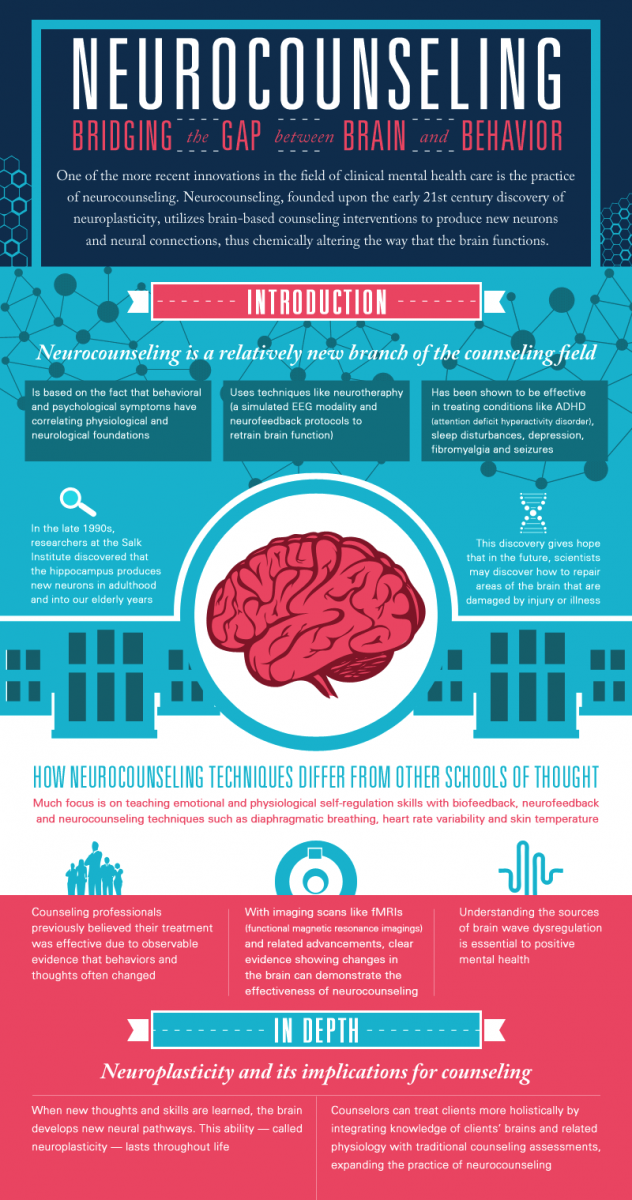Neurocounselling
By Tim Wayne on behalf of Bradley University.
Despite the stigma associated with mental disorders and conditions, we know today that the root of mental illness is often physiological. With the help of advanced imaging technologies, counselors and clinicians are able to observe the real, physical traits in the human brain associated with mental illness.

However, this technology isn’t only useful for diagnosis; in fact, it is changing how counseling and therapy are provided.
In the emerging field of neurocounseling, healthcare professionals are discovering how to produce positive changes in the minds of patients and clients by offering techniques and treatment plans based on their brains’ physiology.
Nurturing recovery
Although it may sound complicated, the principles behind neurocounseling are simple. As we learn more about the brain’s biology and how it changes, counselors can use these cues to guide patients towards treatment. While counselors aren’t capable of literally rewiring a brain, they can provide the conditions – and encourage the behaviors – that nurture recovery.
Neurocounseling is a rising field with a wide range of applications, and it has the potential to guide professionals across the healthcare industry for years to come. Neurocounseling is usually offered by mental health professionals such as family therapists, counselors, and psychologists, typically in a one-on-one setting. Other professionals who may dabble in these techniques include nurses, social workers, and even educators.
For individuals with mental conditions, the rise of neurocounseling gives hope that conditions once considered ‘untreatable’ can be addressed more effectively by recognizing the true root of many mental illnesses: physiology.
Neurocounselling infographic
To learn more about neurocounseling and how it is influencing mental healthcare, check out the infographic below created by Bradley University for their Online Counseling Program.



This essay has been kindly sponsored by Smart Writing Service.





